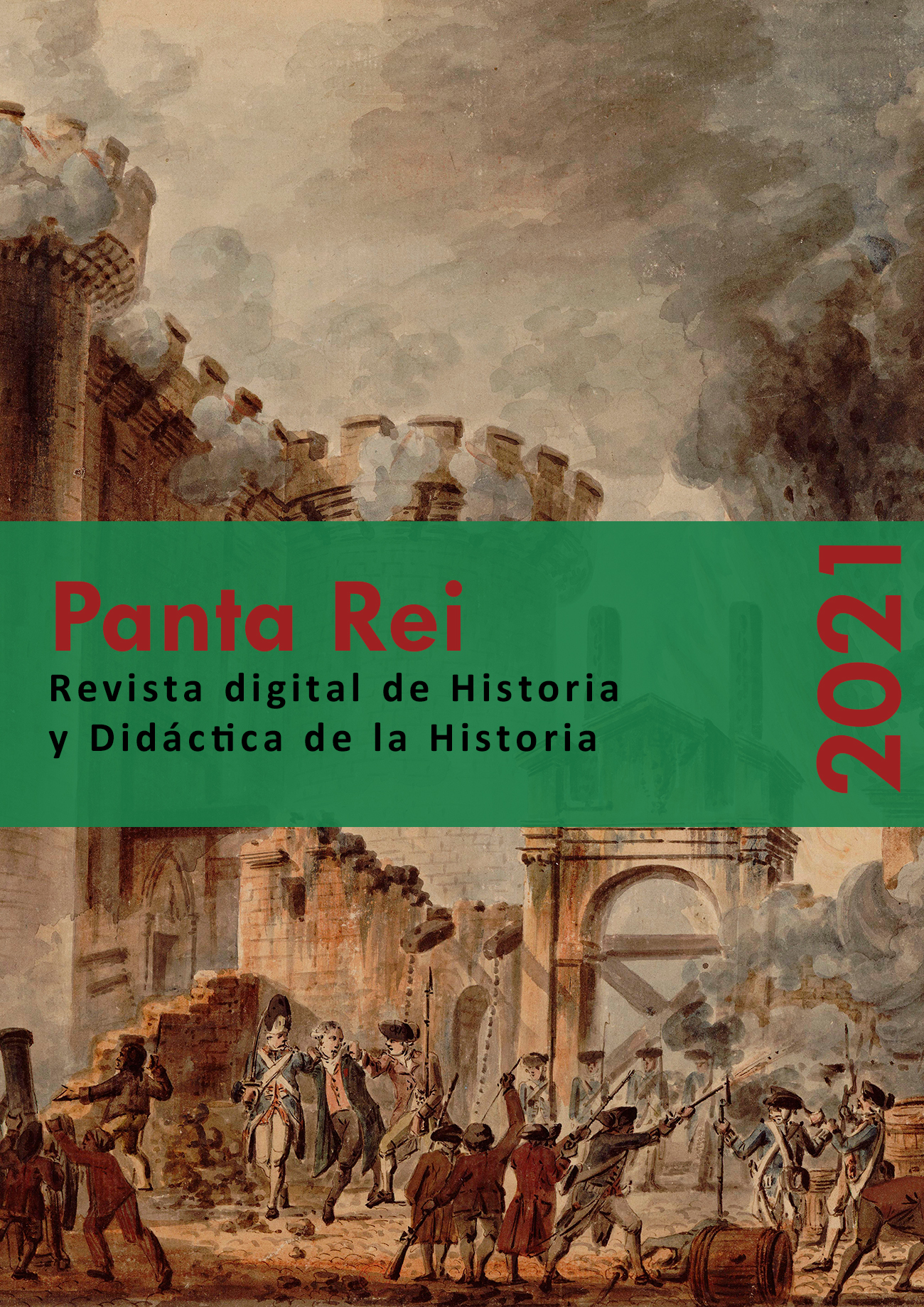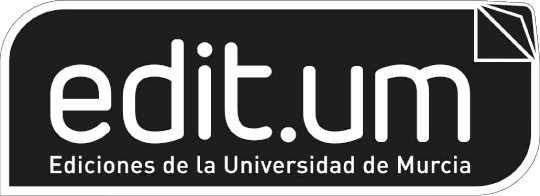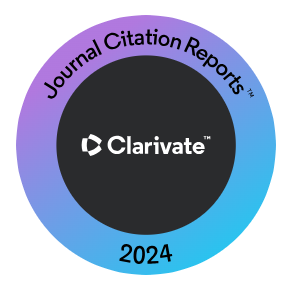Swedish and Spanish pre-service teachers' assumptions on gender inequality in temporal perspective
Abstract
The research is concerned with pre-service teachers’ assumptions about gender inequality and its development across time. In conducting the research 131 narrations of Spanish (n = 55) and Swedish (n = 76) students, enrolled in Primary and Secondary education programs, were analyzed. The research design has been the content analysis of the narratives through a coding process and subsequently identification of co-occurrences, cluster analysis, density of codes and nets of codes with software Nvivo 12 Pro. Although some differences come up regarding the orientantion over time among Swedish and Spanish narratives, in both cases prevail a lack of intentional historical agency (specially of women against the power asymmetries in societies), and a weak analysis of the past from gender perspective that could help to understand current situations.
Downloads
-
Abstract1711
-
PDF (Español (España))758
-
EPUB (Español (España))646
References
Alvén, F. (2017). Tänka rätt och tycka lämplig: historieämnet i skärningspunkten mellan att fostra kulturbärare och förbereda kulturbyggare. Malmö Högskola, Malmö.
Andreu, J. (2002). Las técnicas de análisis de contenido. Una revisión actualizada. Fundación de Centros de Estudios Andaluces. Disponible en https://www.centrodeestudiosandaluces.es/publicaciones/tecnicas-de-analisis-de-contenido-una-revision-actualizada
Arias, L. y Egea, A. (2019). Who changes the course of history? Historical agency in the narrative of Spanish pre-service Primary teachers. History Education Research Journal, 16(2), 322-339. Doi: https://doi.org/10.18546/HERJ.16.2.11
Baker, P. (2014). Considereing context when analyzing representation of gender and sexuality: A case study. En J. Flowerdew (ed.), Discourse in Context: Contemporary Applied Linguistics Volume 3 (pp. 27-48). Bloomsbury.
Barton, K. (2012). Agency, choice and historical action: How history teaching can help students think about democratic decision making. Citizenship Teaching and Learning, 7, 131-142. Doi: https://doi.org/10.1386/Ctl.7.2.131_1
Barton, K. (2017). Overcoming obstacles to teaching about agency. SO-didaktik, 3, 16-23.
Burke, P. (2017). Illustrating National History. En M. Carretero, S. Berger y M. Grever (eds.), Palgrave Handbook of Research in Historical Culture and Education (pp.153-168). Palgrave.
Castells, M. (2005). The Network Society. From Knowledge to Society. En M. Castells y G. Cardoso (eds.), The Network Society. From Knowledge to Society (pp. 3-22). Johns Hopkins Center for Transatlantic Relations.
Calvo González, S. (2021). Educación sexual con enfoque de género en el currículo de la educación obligatoria en España: avances y situación actual. Educatio Siglo XXI, 39(1), 281-304. Doi: https://doi.org/10.6018/educatio.469281
Den Heyer, K. (2003). Between every “now” and “then”: A role for the study of historical agency in history and citizenship education. Theory and Research in Social Education, 31(4), 411–34. Doi: https://doi.org/10.1080/00933104.2003.10473232
Díez Bedmar, Mª. C. (2019). Educación histórica con perspectiva de género: resultados de aprendizaje y competencia docente. El Futuro del Pasado, 10, 81-122. Doi: https://doi.org/10.14516/fdp.2019.010.001.003
Epstein, T. y Peck, C. (2017). A critical sociocultural approach to research in history education. En T. Epstein y C. Peck (eds.), Research on teaching and learning difficult histories in international contexts. A critical sociocultural approach (pp. 1-15). Routledge.
Estepa, J. (2017). Otra didáctica de la historia para otra escuela. Universidad de Huelva Publicaciones.
European Institute for Gender Equality (2014). Índice de igualdad de género. Conclusiones principales. Oficina de Publicaciones de la Unión Europea. Disponible en: https://eige.europa.eu/sites/default/files/documents/MH0213275ESC.pdf
European Institute for Gender Equality (2020). Índice de igualdad de género. España 2020. Oficina de Publicaciones de la Unión Europea. Disponible en: https://eige.europa.eu/sites/default/files/documents/mhag20016esa_002.pdf
Fernández Valencia, A. (2004). Las mujeres como sujeto histórico: género y enseñanza de la historia. Didáctica de las ciencias experimentales y sociales, 18, 5-24. Disponible en: https://ojs.uv.es/index.php/dces/article/view/2898
Fernández Valencia, A. (2010). Género e historia: una perspectiva didáctica. En Mª. J. Calvo y M.ª A. Goicoechea (coords.), Miradas multidisiplinares para un mundo en igualdad (pp. 147-176). Universidad de la Rioja.
Fernández-González, N. y González, N. (2015). La LOMCE a la luz de la CEDAW. Un análisis de la coeducación en la última reforma educativa. Journal of Supranational Policies of Education, 2, 242-263. Disponible en https://revistas.uam.es/jospoe/article/view/5650
Ferrer, V. y Bosch, E. (2013). Del amor romántico a la violencia de género. Para una co-educación emocional en la agenda educativa. Profesorado, 17(1), 105-122. Disponible en: https://www.ugr.es/~recfpro/rev171ART7.pdf
García Luque, A. (2018). Géneros y familia en la enseñanza de la historia escolar. En S. Medina (coord.), Familias, educación y género. Tradiciones y rupturas en las sociedades moderna y contemporánea (pp. 108-131). Trea.
Gómez, C. y Gallego, S. (2016). La pervivencia de estereotipos de género en la enseñanza de la historia. Un estudio a través de libros de texto y las percepciones del alumnado de educación secundaria en España. Revista Electrónica Educare, 20(3). Doi: https://doi.org/10.15359/ree.20-3.1
Gómez, C. y Miralles, P. (2017). Los espejos de Clío. Usos y abusos de la historia en el ámbito escolar. Sílex.
Gómez, C. y Vivas-Moreno, V. et al. (2019) Competencias históricas y narrativas europeas/nacionales en los libros de texto. Cuadernos de Pesquisa, 49(172), 210–234. Doi: https://doi.org/10.1590/198053145406
Grever, M. (2019). Why Historical Consciousness? Epilogue. En A. Clark y C. Peck (eds.). Contemplating historical Consciousness. Notes from the field (pp. 224-233). Berghahn.
Grever, M. y Adriaansen, R. (2019). Historical Consciousness: the enigma of different paradigms. Journal of Curriculum Studies, 51(6), 814-830. Doi: https://doi.org/10.1080/00220272.2019.1652937
Levesque, S. y Croteau, J. P. (2020). Beyond History for Historical Consciousness. Students, Narrative, and Memory. University of Toronto Press
López Noguero, F. (2002). El análisis de contenido como método de investigación. XXI, Revista de Educación, 4, 167-179. Disponible en: https://dialnet.unirioja.es/servlet/articulo?codigo=309707&orden=335386&info=link
MacMillan, M. (2010). The Uses and Abuses of History. Profile Books.
Manzanera, L. (2021). Insumisas: mujeres que se vistieron de hombre en busca de igualdad. Barcelona.
Martínez Anaya, R. (2016). Mujeres silenciadas en la historia. Arraez editores.
McCrum, E. (2013). History teachers’ thinking about the nature of their subject. Teaching and Teacher Education, 35, 73–80. Doi: https://doi.org/10.1016/j.tate.2013.05.004
Miralles-Cardona, C.; Cardona-Moltó, M. C. y Chiner, E. (2020). La perspectiva de género en la formación inicial docente: estudio descriptivo de las percepciones del alumnado. Educación XX1, 23(2), 231-257. Doi: https://doi.org/10.5944/educxx1.23899
Moreno-Vera, J.R. y Alvén, F. (2020). Concepts for historical and geographical thinking in Sweden’s and Spain’s Primary Education Curricula. Humanities and Social Science Communications, 7, 107. Doi: 10.1057/s41599-020-00601-z
Moreno-Vera, J.R. y Díez Ros, R. (2018). Enseñar igualdad de género desde la didáctica de las ciencias sociales. En R. Roig-Vila (ed.), El compromiso académico y social a través de la investigación e innovación educativas en la Enseñanza Superior (pp. 716-726). Octaedro.
Nordgren, K. (2019) Boundaries of historical consciousness: a Western cultural achievement or an anthropological universal? Journal of Curriculum Studies, 51(6), 779-797. Doi: https://doi.org/10.1080/00220272.2019.1652938
Nygren T (2016) Thinking and caring about indigenous peoples’ human rights: Swedish students writing history beyond scholarly debate. Journal of Peace Education, 13(2), 113–135. https://doi.org/10.1080/17400201.2015.1119106
O’Connor, J. (2019). Document Analysis. En M. Lambert y J. L. Belliappa (eds.), Practical Research Methods in Education (pp. 67-75). Routledge
Ortuño, J., Bellatti, I. y Epstein, T. (2020). Enseñanza y aprendizaje de la historia. Justificaciones para un enfoque sociocultural crítico. En J. Prats (coord.), Ciencias sociales, ciudadanía y sociedad digital: Reflexiones desde la educación (pp. 27-48). Trea.
Peck, C., Poyntz, S. y Seixas, P. (2011). Agency in students’ narratives of Canadian History. En L. Perikelous y D. Shemit (eds.), The Future of the Past: Why History Education Matters (pp. 253-282). UNDP-ACT.
Pro, J. (2018). Tiempos y temporalidades en Historia: Presentación. Mélanges de la Casa de Velázquez, 48(2), 311-313. Doi: https://doi.org/10.4000/mcv.8382
Pulido-Montes, C., Francia, G. y Ancheta-Arrabal, A. (2021). Biopolíticas de cierre de centros educativos desde una perspectiva de género: los casos de España y Suecia. Revista Española de Educación Comparada, 38, 17-43. DOI: https://doi.org/10.5944/reec.38.2021.29021
Rüsen, J. (2018). How to Understand Time in Historical Thinking. Some Ideas About a Core Concept in Theory and Didacts of History. En E. Martins (ed.), Educaçao Histórica. Ousadia e inovaçao em Educaçao em História: escritos em homenagem a Maria Auxiliadora Moreira Dos Santos Schmidt (pp. 23-34). W.A. Editores Ldta.
Santisteban, A. (2019). La enseñanza de las ciencias sociales a partir de problemas sociales o temas controvertidos: estado de la cuestión y resultados de una investigación. El futuro del pasado, 10, 57-79. Doi: http://dx.doi.org/10.14516/fdp.2019.010.001.002
Sarti, M., y Barreiro, A. (2018). Identidad nacional en las narrativas sobre un proceso histórico moralmente cuestionable. Culture and Education. Cultura y Educación, 30(3), 433-459. Doi: https://doi.org/10.1080/11356405.2018.1488419
Seixas, P. (2012). ‘Historical agency as a problem for researchers in history education’. Antíteses, 5(10), 537–53. Doi: https://doi.org/10.5433/1984-3356.2012v5n10p537
Seixas, P. (2016). Translation and its discontents: key concepts in English and German history education. Journal of Curriculum Studies, 48(4), 427-439. Doi: https://doi.org/10.1080/00220272.2015.1101618
Skolverket. Swedish National Agency for Education (2014). Sex Education. Gender equality, sexuality and human relationships in the Swedish Curricula. Elanders Sverige. Disponible en https://www.skolverket.se/download/18.6bfaca41169863e6a65bd27/1553966490106/pdf3580.pdf
Strauss, S. y Feiz, P. (2014). Discourse análisis. Putting our Worlds into Words. Routledge.
Van Dijk, T. A. (2016b). Análisis crítico del discurso. Revista Austral de Ciencias Sociales, 30, 213-222. Doi: https://doi.org/10.4206/rev.austral.cienc.soc.2016.n30-10
Van Dijk, T. A. (2016a). Discourse analysis of racism. En J. H. Stanfield (ed.), Rethinking Race and Ethnicity in Research Methods (pp. 43-66). Routledge.
VanSledright, B. (2008). Narratives of Nation-State. Historical Knowledge and School History Education. Review of Research in Education, 32, 109-146. Doi: https://doi.org/10.3102%2F0091732X07311065
Wangdi, Y. (2017). Introducing Revolution, Reform and Rebellion: A Schema for Agency and Change. En G. P. Andrews y Y. Wangdi (eds.), The Role of Agency and Memory in Historical Understanding (pp. 6-18). Cambridge Scholar Publishing.
Wilschut, A. (2019) Historical consciousness of time and its societal uses. Journal of Curriculum Studies, 51(6), 831-849. Doi: https://doi.org/10.1080/00220272.2019.1652939
Copyright (c) 2021 Jorge Ortuño Molina, Fredrik Alvén

This work is licensed under a Creative Commons Attribution-ShareAlike 4.0 International License.
All the contents published in this journal are subject to an Attribution-ShareAlike 4.0 International (CC BY-SA 4.0) Creative Commons License. You are free to: Share — copy and redistribute the material in any medium or format, Adapt — remix, transform, and build upon the material, for any purpose, even commercially. Under the following terms:
Attribution — You must give appropriate credit, provide a link to the license, and indicate if changes were made. You may do so in any reasonable manner, but not in any way that suggests the licensor endorses you or your use.
ShareAlike — If you remix, transform, or build upon the material, you must distribute your contributions under the same license as the original.
Full text of the license is available in: Creative Commons License 











